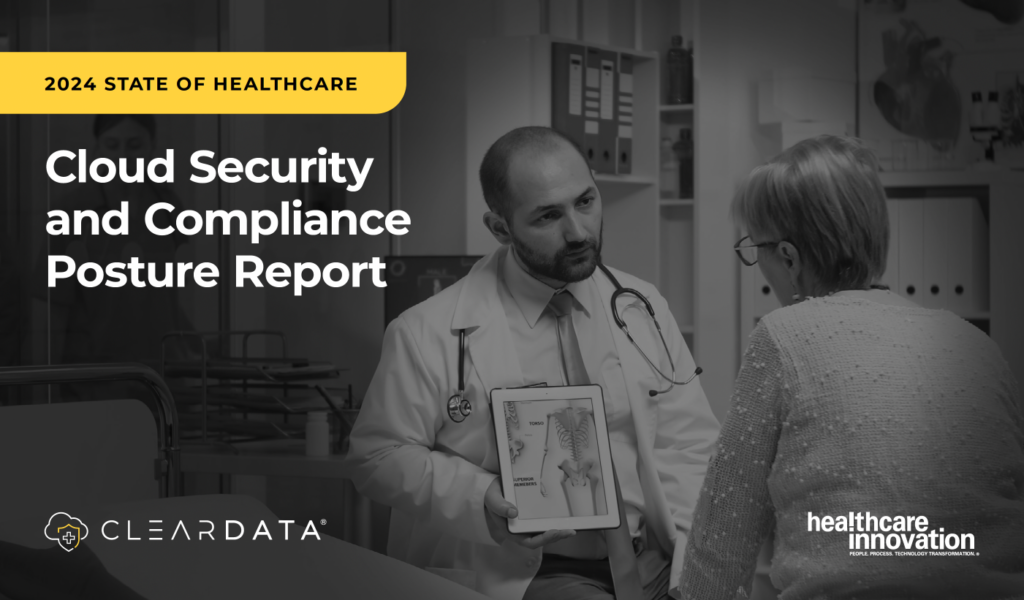As healthcare providers turn to cloud technology to store, manage, and secure patient information, the question becomes: Who exactly is managing the day-to-day security needs of healthcare data in the cloud? It takes advanced expertise to operate a secure, compliant, and resilient healthcare cloud environment, especially as healthcare cybersecurity threats evolve and the field becomes increasingly complex. That said, the field of qualified talent has never been more narrow. So, how do you overcome this skills gap?
Navigating the Complexities of the Cybersecurity Skills Gap
The global healthcare cybersecurity market is expected to grow from approximately $9.6 billion in 2021 to around $27.5 billion by 2026. And according to a LinkedIn report, cloud computing is one of the most in-demand skills, with thousands of job postings requiring cloud expertise. With the demand for skilled professionals in healthcare higher than ever, leadership teams aren’t finding it easy to hire, train, or even retain expert staff. Why exactly is it so challenging to find the right talent to safeguard your healthcare cloud?
Key Challenges in Finding Advanced Healthcare Cloud Expertise

High Market Demand for Advanced Cybersecurity Skills
The demand for qualified cybersecurity professionals far exceeds supply, creating fierce competition for both hiring and retention. This competition not only drives up salary expectations but also intensifies the fight for top talent. Average salaries often exceed $100,000 annually, depending on experience and location.
Cost of Training and Onboarding
Training and certifications are essential for keeping cybersecurity skills up to date, but they come at a significant cost. Allocating resources and budgets for ongoing training and development can be extremely expensive, especially in smaller organizations.
Lack of Career Path Awareness
Many potential cybersecurity professionals have the skills and capabilities to do the job but don’t realize that they have diverse career path options in the industry. That can deter individuals from pursuing careers in this field, worsening the shortage.
Need for Continuous Education and Certification
Advanced cybersecurity skill sets are especially important in healthcare, where the cost of PHI and PII is exponentially more valuable to bad actors than basic banking information. Training programs for cloud security professionals often lag behind the latest technological advancements, leaving graduates ill-prepared for the realities of the job market.
Niche Expertise Needed for a Healthcare Cloud Cybersecurity Career
Regulatory Compliance
Navigating the intricate web of healthcare regulations is no small feat. Compliance with regulations like HIPAA and GDPR requires a deep level of knowledge and understanding professionals have to pair with healthcare cloud cybersecurity expertise.
Healthcare Cloud Risk Management
As we saw with the recent CrowdStrike outage and many other healthcare cyber incidents, healthcare cybersecurity professionals need to stand ready to implement risk management frameworks that help anticipate and address potential threats before they happen.
Incident Response and Recovery
When an outage or cyber incident does strike, the best and brightest cybersecurity teams leverage an incident response plan that is both swift and effective. Professionals with incident and disaster response and recovery expertise can put in place clear procedures for identifying, managing, and mitigating incidents, ensuring that all team members are trained and prepared to act.
Data Encryption and Access Control
Working in healthcare cybersecurity, professionals need to hold deep knowledge of encryption and identity and access management (IAM). Encryption serves as a powerful tool in this process, transforming data into a format that is unreadable without the appropriate decryption keys. This means that even if unauthorized individuals gain access to the data, they cannot make sense of it without the necessary credentials.
What Cybersecurity Skills Do You Need to Look For?

Technical Skills
Proficiency in programming languages like JavaScript, Python, and Ruby, combined with knowledge of network security and the major clouds, AWS, Azure, and GCP, is crucial in healthcare cybersecurity.
Security and Compliance
Knowledge of regulations like HIPAA and GDPR, combined with experience in security frameworks such as HITRUST, and skills in identity and access management (IAM) and data encryption, are essential.
Analytical Skills
Experience in risk identification and management, combined with data analysis skills, allows professionals to interpret security trends and vulnerabilities, ensuring a proactive approach to safeguarding sensitive health information.
Soft Skills
It’s important that healthcare cybersecurity teams are able to clearly articulate security policies and procedures. Additionally, problem-solving skills are highly useful in addressing complex security challenges, ensuring that vulnerabilities are effectively managed.
Certifications
Consider certifications like Health Care Information Security and Privacy Practitioner (HCISPP) or Security+ for foundational knowledge. These skills will help your team navigate the unique challenges of securing healthcare data in cloud environments.
How to Close the Cybersecurity Skills Gap
Strategic Hiring: Leverage a diverse range of recruitment channels – it’s a numbers game, and you have to start by being seen by many of your potential candidates. Use industry-specific job boards, social media, and tech forums to tap into a rich pool of talent. Internships and apprenticeships allow companies to cultivate fresh talent from universities and coding bootcamps, providing these individuals with valuable real-world experience in the healthcare cybersecurity field.
Comprehensive Training Programs: Implementing continuous education initiatives, such as regular workshops, webinars, and certifications like Certified Cloud Security Professional (CCSP) and Health Information Security and Privacy Practitioner (HCISPP), ensures that professionals stay updated on the latest security practices. Forming partnerships with educational institutions and cloud service providers can lead to specialized training tailored to the unique needs of healthcare cybersecurity.
Retention Strategies: In today’s job market, offering competitive compensation and career advancement opportunities is a must. Offer attractive salary packages and benefits, along with perks like remote work flexibility. Clearly defining career paths and encouraging strategic lateral moves within the organization can motivate employees, broaden their skills, and enhance their knowledge, all making it more appealing for them to stay within an organization rather than embark on a new job hunt.
Addressing High Demand and Competition: Take a more proactive approach – foster relationships with tech communities and actively participate in industry events to build a pipeline of qualified candidates. Explore innovative recruitment strategies that emphasize transferable skills from adjacent industries, such as finance or IT, to uncover new talent pools and facilitate smoother transitions into healthcare cybersecurity roles.
Cost-Effective Training Solutions: Create or adopt in-house training modules that align with industry standards and address emerging threats and technologies – there are so many online platforms and e-learning tools to help you facilitate a scalable training program that is both flexible and budget-friendly.
Taking Action for a Secure Future
As you look at the cybersecurity skills gaps within your organization, remember that in-house, full-time positions may not be enough to round out your team and keep your healthcare data secure in the cloud. When you tally up the cost of salaries, software, and internal trainings, it also may not be the most cost-effective approach.
Our latest report with Healthcare Innovation, The 2024 State of Healthcare Cloud Security and Compliance Posture Report, found that a significant portion of healthcare cybersecurity budget increases are allocated to staff training, with 68% of organizations surveyed focused on this effort. Meanwhile, 80% of respondents reported at least one misconfiguration in the past year and most are experiencing 3-5 security incidents annually. Together, the data paints a clear picture, telling us that upskilling internal healthcare cybersecurity teams isn’t working as well as it should.
To shore up your cloud cybersecurity while streamlining budget, you’ll want to consider how and when to engage with external vendor partners, including managed security service providers (MSSPs) and cloud service providers (CSPs). When selecting a vendor, prioritize those with extensive healthcare experience, as they will be more attuned to the sector’s unique challenges and regulatory requirements. Look for MSSPs and CSPs who have a proven track record in the healthcare space, and consider their ability to deliver security solutions that align with your organizational needs.
Collaborating with a healthcare cybersecurity cloud partner gives you access to cutting-edge security solutions and helps you stay ahead in a competitive market.
Ready to augment your cybersecurity expertise? Schedule a consultation today.
Ready to augment your healthcare cybersecurity expertise?



